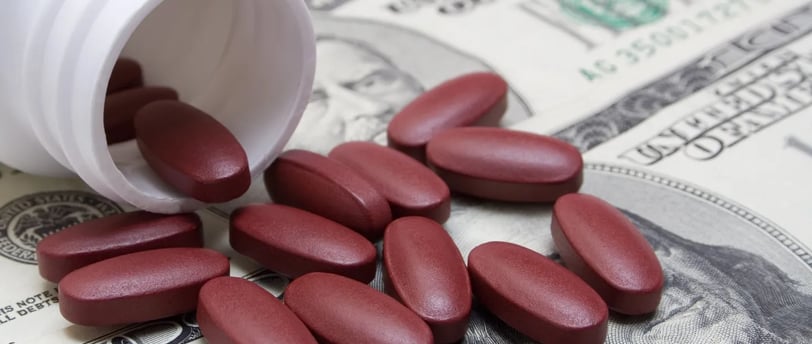The Toxic Potential of Herbal Supplements
Hidden ingredients and microbial contamination
SUPPLEMENTS
Dr Simon Miller Ph.D.
4/3/20242 min read


Eating a wide variety of natural, whole foods such as fruits and vegetables is a great way to obtain essential micronutrients, including vitamins, minerals, and phytochemicals (natural compounds with biological activity). This leads people to believe that if they consume more of a compound that has been associated with health benefits, then the health effects will be increased. However, this is rarely the case. Healthy nutrition is all about balance, and an excess of just about anything has the potential for toxicity. This applies to vitamins (including vitamin C), minerals, protein, water, and even the ratio of oxygen in the air we breathe (pure oxygen can kill a person in days).
Supplements, by design, provide a concentrated dose of specific molecules such as vitamins, herbal extracts, or microbial-derived compounds. This immediately removes any balance with accompanying nutrients and the natural safety net with regard to the amount that would otherwise be obtained when consuming whole foods. Some compounds may only be beneficial or active when obtained from natural food sources, and may induce deleterious effects when obtained via supplements. Furthermore, supplements can and often do have adverse interactions with various medications, which can lead to reduced efficacy or toxic side effects. Moreover, it may take several decades before any toxic effects of supplements are identified. Scientific literature is littered with studies of compounds that were shown to be healthy when present naturally in foods, but have either no benefit or potentially unhealthy side effects when taken in supplemental form. It is also important to beware of potentially biased scientific studies that may have been conducted with funding from companies that produce and market associated supplements or health foods.
More worryingly, supplements are not regulated or tested for their health claims or ingredients. What is on the label is rarely contained in the package. The concentrations of active ingredients are often dramatically higher or lower than the claimed values, and unlabelled (or hidden) ingredients are frequently present. Sometimes, herbal extracts are mistakingly sourced from a different plant species, for example, the wrong type of ginseng, which may exhibit toxicity to various organs throughout the body. Moreover, there is a genuine risk that supplements may be contaminated with harmful chemicals, toxins or microbial growth.
A recent scandal in Japan involved red yeast rice supplements, which have been linked to the death of several individuals and the hospitalisation of over 100 more. The fungus that produces the biologically active compound, monacolin K (identical to lovastatin), also produces a mycotoxin (a toxin produced by fungi) that causes kidney damage. Even red yeast rice supplements that have not been contaminated with the mycotoxin in question, known as citrinin, still have the potential for other toxic effects, similar to any statin medication. The affected individuals effectively paid a pharmaceutical company to be poisoned, as the supplements cost around $20 a month.
In summary, be careful of what you put into your body. Whole foods are better than supplements and provide a safer and more optimal balance of nutrients. If you suspect you are deficient in a nutrient or consider yourself to be at high risk of disease onset, such as heart disease, then go to a reputable clinic for a health check and make sure to obtain any medication from a licensed supplier. Don't believe the herbal supplement hype, and definitely do not buy any supplements online.
For the ultimate balanced nutritional guide to overall good health, please refer to the OneLife Diet Meal Plan (eBook).
Further reading:
OneLife Diet Meal Plan: Total Nutritional Guide. Link
U.S. Food & Drug Administration, Health Fraud Product Database Link.
A Review of Authenticity and Authentication of Commercial Ginseng Herbal Medicines and Food Supplements. PubMed (National Library of Medicine) Link.


